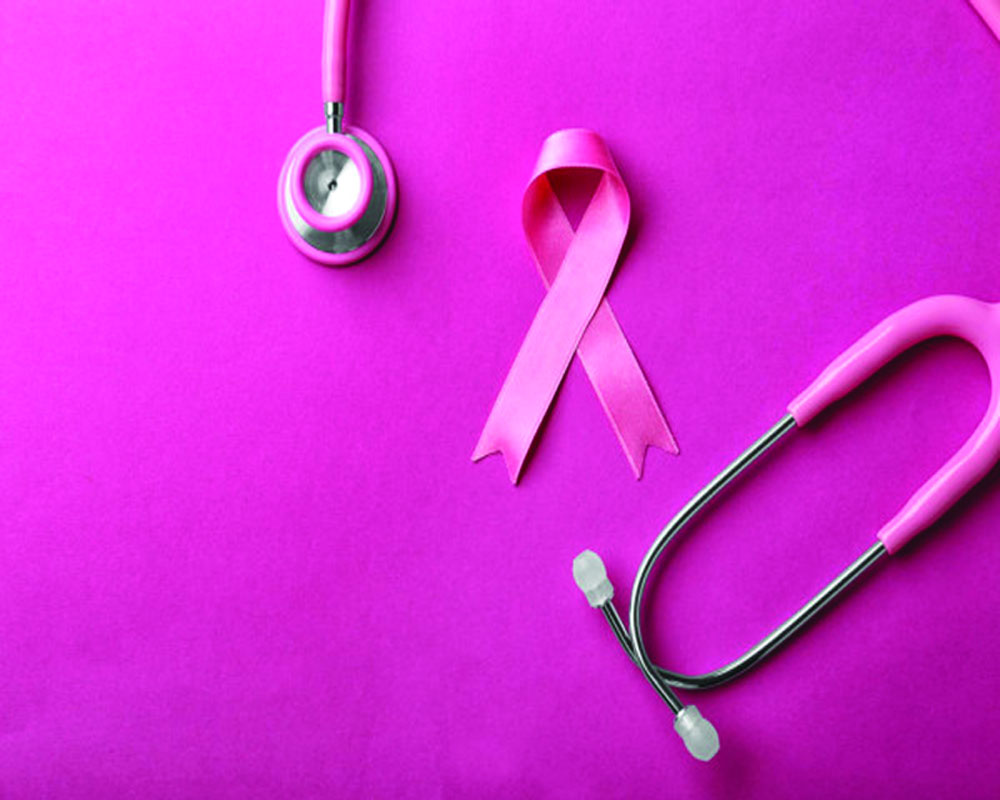Due to the lack of awareness about breast cancer and in absence of a screening programme, the majority of these cases are diagnosed at a relatively advanced stage increasing the risk of mortality, says DR AKTA BAJAJ
As there is an early onset of breast cancer with an average age dropped from 50 years to late 30s, breast cancer has become the commonest cancer not only in urban Indian women but also the second most common in the rural females. Due to the lack of awareness of this disease and in absence of a breast cancer screening programme, the majority of breast cancers are diagnosed at a relatively advanced stage increasing the risk of mortality. It has become imperative for being breast aware for all women, and regular self-examination should be part of one’s health routine to spot any changes in the breasts. The earlier cancer is detected, the better the chances for treatment and survival.
Causes
Doctors say that breast cancers usually occur when some breast cells begin to grow abnormally. These cells divide faster than healthy cells and continue to accumulate thereby forming a lump or mass. The cells can metastasize through the breast to one’s lymph nodes and then to other parts of the body. According to research and study breast cancer usually begins in the milk producing ducts of the breasts and is initially called invasive ductal carcinoma. Another common region where breast cancer can begin is the glandular tissue called lobules which is diagnosed as invasive lobular carcinoma.
Other than that doctors claim that five to 10 percent of breast cancers are linked to gene mutations passed through one generation to another within a family. The most well-known breast cancer genes are BRCA1 and BRCA2.
Through BRCA1 or BRCA2 gene, it produces proteins that help repair damaged DNA and provides a shield from certain cancers. However, when there is a genetic abnormality, it restricts the healthy functioning of these genes and increases the risk of cancer.
According to a data published in the Centre for Disease Control and Prevention, about 3% of breast cancers (about 7,500 women per year) and 10% of ovarian cancers (about 2,000 women per year) result from inherited mutations in the BRCA1 and BRCA2 genes.
Other warning signs
- Change in the size, shape and appearance of the breast
- Formation of dimple or changes in the skin around the breast
- A breast lump or thickening which feels different from the surrounding tissue
- Redness or pitting like the skin of an orange over your breast
- Crusting, peeling, scaling or flaking of the pigmented area surrounding the nipple (areola) or breast skin
- A newly inverted nipple
Risk Factors
- Age: The older you are the more prone you are to developing breast cancer.
- Family and personal history: If someone in your family had breast cancer or if you have had a breast biopsy that detected lobular carcinoma or atypical hyperplasia you have an increased risk of having breast cancer.
- Radiation exposure: If you have received radiation treatment to your chest as a child then you're at a higher risk of breast cancer.
- Hormone therapy: Women who take hormone therapy medications which combine estrogen and progesterone to treat the signs and symptoms of menopause have an increased risk of breast cancer.
- Obesity: People who are overweight are at a greater risk of breast cancer
- Period: Girls who get period before the age of 12 are at greater risk of breast cancer
- Menopause: Women who get menopause at an older age are at a greater risk of breast cancer
- Childbirth: The women who give birth to their child after the age of 30 have an increased risk of cancer
- No pregnancy: Women who have never been pregnant are at a greater risk of developing cancer than the ones who have been pregnant
- Alcohol consumption: Drinking alcohol increases the risk of breast cancer
Prevention
When it comes to breast cancer prevention, it’s essential to stay aware and pay attention to your own health. Here are some of the ways you can prevent breast cancer in its initial stage.
Opt for regular breast cancer screenings: A session with your doctor will help you understand whether or not to go for clinical breast exams and mammograms as you will be able to weigh down the pros and cons of the screening.
Self-exam: It’s the simplest way to diagnose breast cancer and can be performed by inspecting your breasts for any potential lumps or other unusual signs.
Limit alcohol: Restrict the use of alcohol to not more than one drink a day
Regular exercise: Exercising regularly will reduce your risk of breast cancer. So aim for at least 30 minutes of exercising each day.
Healthy diet: A healthy diet with fruits, vegetables, nuts, virgin olive oil, whole grains and legumes as well as fish instead of red meat will reduce the risk of breast cancer. It will also help you maintain your weight and not consume more calories than you should.
Avoid hormone therapy: Some women cannot deal with menopause and opt for hormone therapy, which can be detrimental to their health and makes them prone to breast cancer. One must consult with their doctor and if they permit only then they should go for the lowest dose.
The writer is senior Consultant and Head, Obstetrics and Gynecology, Ujala Cygnus Group of Hospitals


























